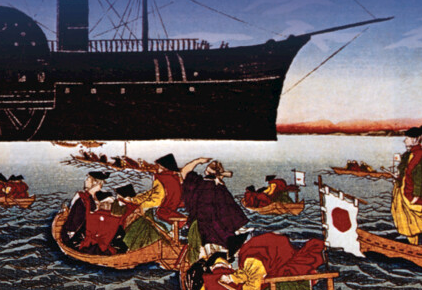
Two frustrations prompted me to write this book. The first was with the absence of book-length analysis of the deep historical roots of the field of international political economy (IPE) in the pre-1945 era. Many IPE scholars refer to the fact that their field builds on the ideas of many thinkers who wrote about international economic relations in that earlier period. But when students ask for an overview of these antecedents of modern IPE, there has been no book that serves this purpose.
I have been waiting for many years for someone else to fill this gap in the IPE curriculum. When I did not see anyone taking up the task, I decided that I should try to do it myself. I have been driven by a belief that IPE students can benefit enormously from the study of these earlier thinkers. These historical figures developed important ideas that are still useful today for analyzing the politics of the world economy. Many of their names and ideas also continue to be invoked today in both scholarship and even public debate.
The second frustration was with the way that the deep roots of IPE are usually depicted in IPE textbooks when they provide a brief overview of this topic. These depictions almost always focus on a number of thinkers from Europe and the United States who pioneered three competing perspectives of economic liberalism (Adam Smith, David Ricardo), neomercantilism (Alexander Hamilton, Friedrich List), and Marxism (Karl Marx, Vladimir Lenin). There is no question that each of these thinkers developed important ideas that students should know, but I have long felt that this depiction of the deep history of IPE was much too narrow.
To begin with, it overlooks how pre-1945 debates about international economic relations involved much more than just a three-way debate between economic liberals, neomercantilists, and Marxists. The focus on that debate steers attention away from many fascinating debates that existed within each of these perspectives, including on key issues such as economic foundations of international peace or views of imperialism. Some of these internal debates were cross-cutting ones across the three perspectives. For example, imperialism had supporters and opponents of imperialism in each of the liberal, neomercantilist, and Marxist camps. The same of true of views towards multilateral economic institutions.
The focus on the three-way debate also neglects other perspectives on international economic relations that were prominent in the pre-1945 era. They included autarkism, environmental, feminism, Pan-Africanism, Pan-Islamism, Pan-Asianism, and some distinctive visions of economic regionalism. The content of some of these perspectives overlapped with that of economic liberalism, neomercantilism, and Marxism in various ways. But they called attention to issues that receive little attention in the textbook description of the tripartite debate, such as national self-sufficiency, environmental degradation, gender inequality, racial discrimination, religious and civilizational values, and varieties of economic regionalism.
The conventional textbook account IPE’s deep roots had one further key limitation: it focuses only on European and American thinkers. Many pre-1945 thinkers from other regions of the world developed important and influential ideas about international economic relations. Some of those ideas included the distinctive perspectives just noted. Others included interesting modifications of European and American versions of economic liberalism, neomercantilism, and Marxism. Thinkers beyond Europe and the United States also sometimes developed independent versions of those perspectives. Some of them also influenced the ideas of European and American thinkers.
In this book, I try to overcome these limitations of the conventional textbook account of the pre-1945 roots of IPE. I hope the result is interesting and useful for the next generation of IPE students. At the very least, I hope the book helps them to see the diverse ways in which the world economy has long been contested.
Latest Comments
Have your say!